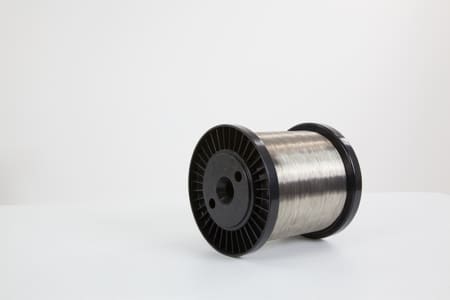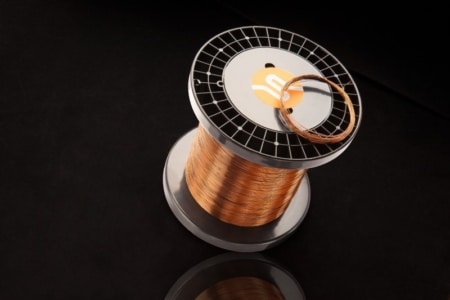When finding suitable resistance wire suppliers, risk and relationship management can be beneficial in the long term as it ensures consistency and diligence from the get-go.
Developing appropriate relationships necessitates assessing suppliers who best meet your needs and are well suited to your industry. However, there are a few essential aspects to keep in mind when looking for a suitable provider.
5 Questions To Ask A New Resistance Wire Supplier Before You Place an Order
By Stephen Holt, Technical Manager since 1996
1. Supplier Lead Time Requirements
Resistance wire supply chain management has a direct impact on the lead time you can give your customers. Manufacturing has experienced three major supply shocks in the recent past which have had significant effects on lead times. Brexit caused major delays in transport, with consignments stuck for weeks in Customs both getting into and leaving the UK. Scott Precision Wire had to become experts in Customs procedures and documentation to receive raw materials and deliver finished products with minimal delay. Brexit continues to influence trade as new regulations being introduced require new cross border processes.
The Covid 19 pandemic created a significant downturn in the manufacturing output for many raw materials and the reduction in operating capacity to reduce costs in areas such as alloy smelting. Securing a consistent supply of material at this time meant forecasting many months in advance to secure the capacity available.
Finally, the Russian invasion of Ukraine caused the imposition of sanctions on some of the key ingredients of resistance alloys, such as Nickel where Russia provided some 30% of the global demand, and meant the creation of new supply routes for many manufacturers.
2. Range Of Wire Supplies Available
It is essential to ensure the components you are purchasing suit your particular industrial demands. The Resistance and Thermocouple products Scott Precision Wire provides includes:
- Solid Resistance Wire
- Solid Thermocouple Wire
- Bunched Wire
- Concentrically Stranded Wire
- Ribbon & Tape
- Enamelled Wire
- Plastic Coated Wire
- Electrofusion Wire
- Heater Core Wire
- Rolled Alloy Strip
- High Temperature Nickel Lead Wire
These alloy wires can be used in different industry sectors; resistance wires are not only used to make heating elements, they may also be used to make overload protection ‘shunt’ resistors for large electric motors and thermocouple wires can be used not just for temperature measurement but also to create power, by daisy chaining multiple junctions in a burner flame.
Different industry sectors can apply the use of alloy wires for their specific needs. With such a vast range of cables and applications, the requirements for materials and services must be of the highest quality and reliability. Question the scope of wires available and how they may fit with your operations.
3. Materials Used By Suppliers
Material requirements for specific industries vary according to the application type. There are also ethical and sustainability criteria which need to be considered in a post-modern world. For resistance and thermocouple wire applications the wires must be consistent along every metre. A resistance wire must give out the same heat all along its length to provide an even heating effect without hot or cold spots. Similarly, thermocouple wires do not only sense the temperature at each end of the cable, but some of the thermoelectric effect is generated along the entire length. To achieve this, the raw materials must be of the highest quality. A small difference in the percentage composition of trace elements in the alloy can influence the electrical properties by a value many times greater than that percentage difference.
Sourcing alloy rod from only the best producers guarantees every metre of product from Scott Precision Wire will meet your requirements.
4. Connection Between Supplier and Industry Sector
Understanding the particular requirements of varied industry sectors is key for a partnership supply environment to succeed. Scott Precision Wire is technically and scientifically led and has over 100 years of experience supplying industries as varied as aerospace to water utilities supply. This unique knowledge base provides security to customers in terms of technical support, quality, flexibility and reliability.
Does your current supplier really understand your requirements, your industry and your market?
5. Supplier Quality Assurance
Quality Assurance is no longer just checking whether your supplier has ISO9001 accreditation. Sustainability and reliability in your supply chain now includes consideration of their Environmental, Social and Governance (ESG) performance. There are a number of platforms which assess organisations for these aspects, such as EcoVadis, whose reports and conclusions are available online. These 360-degree assessments give vital information on how your supplier can both live up to the high expectations required in today’s business environment as well as how they can respond to the sudden changes that have become part of everyday life in a rapidly changing world.
Check your supplier’s ESG credentials as part of your vendor assessment.


